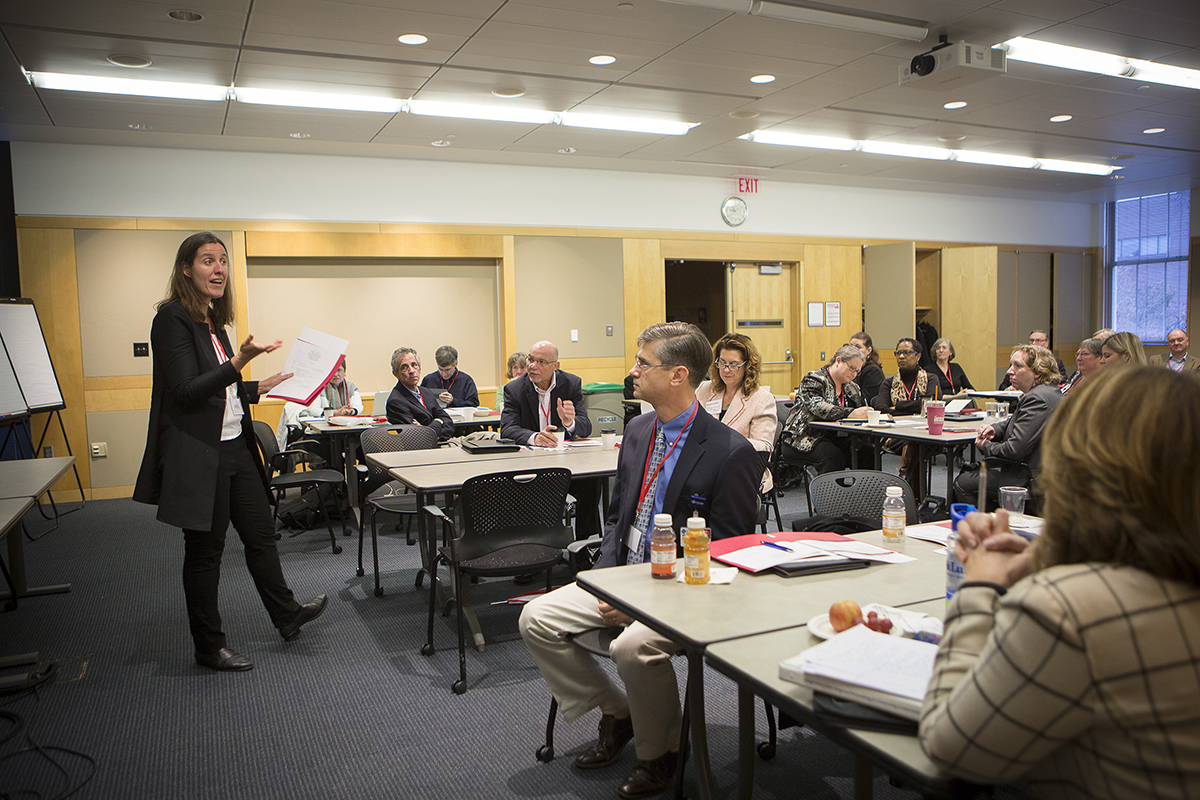Symposium fosters network to facilitate dual-career hiring
By Susan Kelley

Many new faculty hired at Cornell have a spouse or partner who needs an academic or professional job for the couple to agree to come to Cornell.
But where are the career opportunities for those partners? Faculty positions for a candidate’s spouse or partner are limited in Ithaca.
It’s a thorny question facing higher ed institutions around the country. A 2008 Stanford University study found that more than 70 percent of faculty members have an employed partner, and more than 35 percent have a partner who’s an academic.
“We hear from our department chairs that this is becoming a challenging issue in recruitment,” said Yael Levitte, associate vice provost for faculty development and diversity.
To chip away at the problem, Cornell hosted a Dual-Career Symposium Nov. 9 at King-Shaw Hall. The goal was to foster a regional network of colleagues to discuss how to leverage collective resources to better address the challenging issue of dual-career hiring.
The symposium included remarks by Provost Michael Kotlikoff, who recently announced a new policy that boosts the university’s support for dual-career couples. “Nothing is more important to research advances, teaching excellence and the overall quality of our programs and our reputation than recruiting and retaining the most outstanding faculty,” he said.
More than 40 participants from a number of universities, Cayuga Medical Center and the Tompkins County Chamber of Commerce attended the half-day event.
“We’re all trying to do the same thing, which is figure out the most effective mechanisms for facilitating the placement of accompanying spouses,” said participant Karen Anderson, Yale University’s associate provost for academic resources and faculty development. “A lot of that is figuring out what are the best practices that other institutions are doing. … I wanted to come to hear what other people are doing and what the state of the art is.”
Rita Tomlinson, director of talent management at Syracuse University, discovered that other institutions are practicing one-on-one career counseling for accompanying partners, a strategy that’s been useful at Syracuse.
“It tells the couple the institution is saying, ‘We care and we want you here,’” Tomlinson said. “That’s what those who are moving tell us they want. A relocation is a huge life event. It takes a huge amount of attention.”
Anderson was inspired by a presentation on the academic career network created by the Five College Consortium, a coalition of western Massachusetts institutions including Mount Holyoke, Amherst and Smith colleges and the University of Massachusetts, Amherst. “The takeaway is that a small consortium is probably, for us, a more effective model than a larger, more broadly regional group,” she said.
A presentation about the Higher Education Recruitment Consortium prompted many of the upstate New York participants to express interest in streamlining and better integrating their regional network so as to communicate more effectively about dual-career issues, Levitte said.
For example, Bruce Mattingly, dean of SUNY Cortland’s School of Arts and Sciences, said he has 14 open faculty positions he is trying to fill. “We really need to know that type of information,” Levitte said.
One of the most valuable aspects of the event was that it enabled participants to put faces to names and cultivate contacts to whom they can reach out when a dual-career situation arises, she said. “Anonymously shopping résumés, we know from experience, just doesn’t work.”
Attendees included representatives from Binghamton University, Cayuga Medical Center, Hobart and William Smith Colleges, Ithaca College, Keuka College, Syracuse University, Tompkins County Chamber of Commerce, University at Buffalo, SUNY Cortland and Yale University. Also attending were Cornell deans, associate deans, professors and human resources directors and staff.
Media Contact
Get Cornell news delivered right to your inbox.
Subscribe